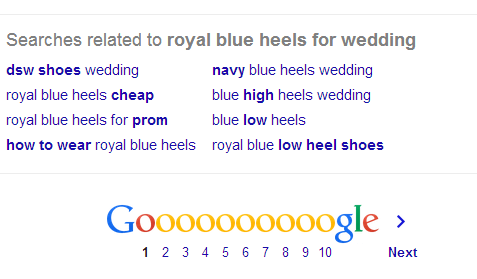A Performance Marketer's Guide to Long-Tail Keywords

One of the best ways performance marketers can separate themselves from other advertising channels is by targeting niche audiences. In doing so, performance marketers should focus on promoting content that targets long-tail search queries.
By leveraging long-tail keywords, marketers typically end up targeting a niche audience that is looking for information, products or services that are hyper-specific. Equally as beneficial, long-tail keywords usually have a lower cost per click and less competition. The challenge, however, can be finding the right long-tail queries to focus on.
Keyword Tools
The first stop in the quest to long-tail keyword domination is usually a keyword tool. Keyword tools, such as Google's AdWords Keyword Planner, Wordtracker or WordStream (find more keyword tools here), can help performance marketers discover the best long-tail phrases to target.
For instance, Wordtracker's free keyword tool (see image below) offers insights into the number of searches conducted for a keyword, the amount of competition there is for a keyword phrase and the number of pages for which the keyword appears in both the title tag and anchor text of a backlink. By leveraging this data, performance marketers can sift through the results to find the keywords with little competition, yet have a high number of searches. In addition, they should identify the keywords that are relevant to the affiliate offer they are promoting.

Moreover, performance marketer should try to find long-tail keyword phrases that show purchase intent, as these searches will result in the most conversions. For example, someone that searches "blue high heels shoes free shipping" will typically be more likely to make a purchase than someone who searches "blue high heels."
It is important to remember, however, that customers typically go through a few stages in their journey to conversion. This means that even though performance marketers will receive the most conversions by targeting intent-based keywords, they should also create content that nurtures customers through the purchasing lifecycle. In doing so, performance marketers set themselves up to earn more commissions in the long run. For instance, targeting a long-tail phrase like "blue high heels of 2014" addresses the awareness stage, which prepares the customer to make a future purchase.
Ask Google
In addition to keyword tools, performance marketers can research long-tail keywords by going directly to Google's search engine. Not only does Google's search engine try to predict queries as they are being typed (which can lead you to discover new long-tail keywords), but performance marketers can also analyze the competition in the search results for specific queries. Moreover, at the bottom of the search page, Google offers suggestions for related searches, which often includes long-tail keywords.
For example, when conducting a search for "blue heels" on Google, the search engine provides related searches that include long-tail keywords, such as "blue wedding shoes" and "blue heels for wedding." Performance marketers can take this research a step further by searching these long-tail keywords to discover more related search suggestions. In the case of "blue heels for wedding" Google provides phrases like "royal blue heels for wedding," "blue high heels for wedding" and "navy blue heels wedding."

Optimize Over Time
After you have identified the most relevant long-tail keywords and created content for them, it is time to monitor analytics.
For starters, performance marketers should measure the amount of traffic the long-tail keywords are driving and compare it to past traffic metrics. In addition, they should monitor other metrics that can be attributed to performance, such as time on page and bounce rate.
Most importantly, it is important to keep an eye on conversions to determine if the long-tail content is pushing customers through the purchasing funnel. In doing so, marketers should identify their best converting keywords and optimize their future content strategies accordingly by either creating more content for those phrases or experimenting with similar phrases. For example, if "blue heels for wedding" is a high converter, performance marketers may want to try creating content for phrases like "blue heels for special occasion."
Finding the right long-tail keywords can be a challenge, as it can require a lot of time and research. Over time, however, this strategy definitely helps performance marketers stand out from an advertiser's other marketing channels.

Subscribe to Our Newsletter!
Latest in Marketing









